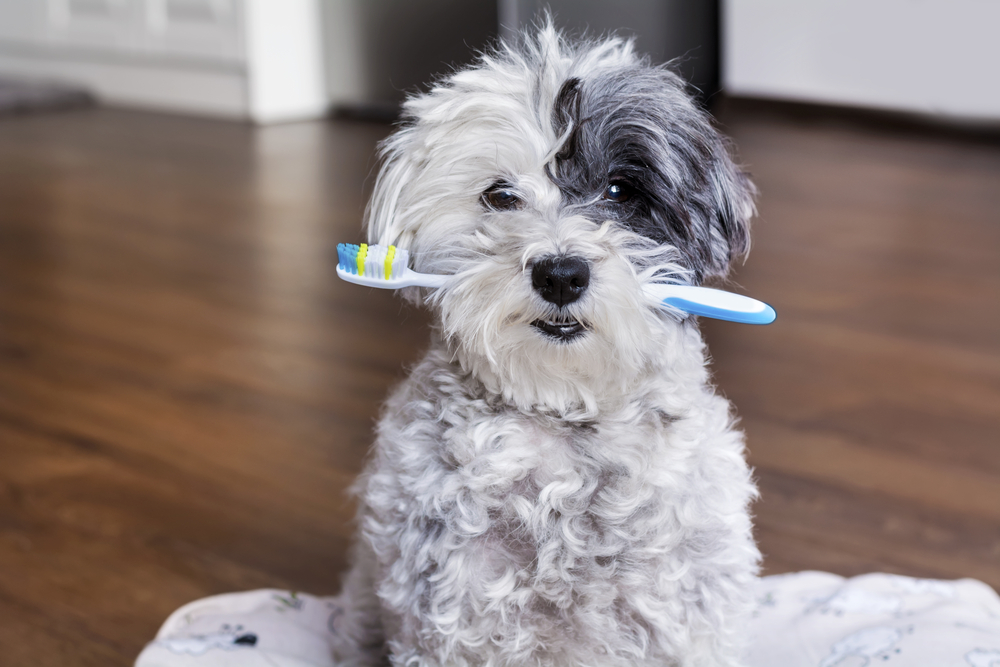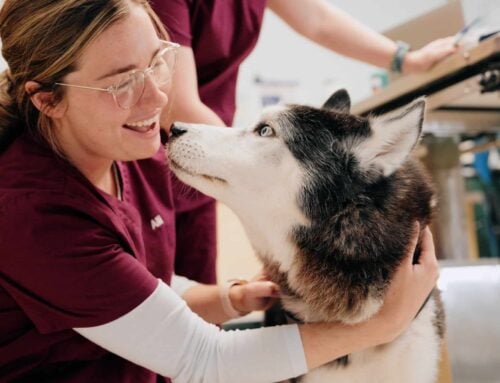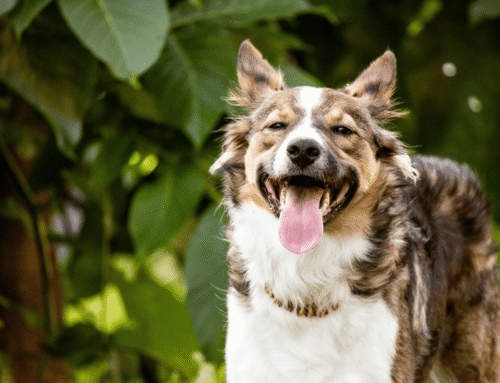You brush your teeth twice a day, floss, and use mouthwash to keep your teeth clean and your breath fresh, and maintaining your pet’s dental health is equally important. Dental disease
affects more than your pet’s mouth and can lead to other serious health problems. Fortunately, routine dental care helps keep your pet’s mouth healthy and clean and improves their overall well-being. Our Shuler Veterinary Clinic team shares five tips to maintain your pet’s dental health.
#1: Learn about dental disease in pets
Before you can take proactive steps to prevent your pet from developing dental disease, you must first understand the condition’s causes. Only hours after your pet eats, sticky plaque forms a slimy layer on their teeth that in a few days hardens into cement-like tartar, trapping bacteria in and around the gumline. As the bacteria invade your pet’s tooth roots, they cause painful periodontal disease, infection, abscesses, and tooth loosening and loss. As the bacteria leach into your pet’s bloodstream, they attack internal organs such as their heart, which can be life-threatening.
#2: Look for dental disease signs in your pet
While bad breath odor is usually dental disease’s first sign, tooth discoloration attributable to tartar accumulation is often readily apparent, particularly on the large canine teeth. Other dental disease signs in pets include excessive drooling, shying away when you touch your pet’s head, pawing at their mouth, difficulty chewing food, and blood-tinged saliva caused by broken teeth. If your pet has dental disease, their appetite may decline, although most pets hide their pain and continue to eat until the pain becomes severe.
#3: Schedule regular professional dental examinations for your pet
People require regular visits for routine teeth cleaning to remain healthy. Likewise, pets require regular dental check-ups and cleanings to maintain good oral health and prevent problems. A close examination of the teeth is a crucial part of your pet’s recommended annual veterinary wellness exam. Our Shuler Veterinary Clinic team uses a state-of-the-art digital dental radiographic machine to diagnose periodontal disease and under-the-gum abnormalities that are not detectable through an oral exam. A professional cleaning may be recommended, along with dental X-rays to show the 60% of dental problems that exist under the gumline and cannot be directly visualized.
#4: Create an at-home dental routine for your pet
Develop a dental hygiene routine for your pet at an early age, and then stick to the routine to reduce their dental disease risks down the road. Brush your pet’s teeth daily, or at least three times per week. Avoid using toothpaste intended for people because it contains fluoride that is unsafe for pets if they swallow the substance. Pet-safe toothpaste, such as CET Toothpaste, is available in many flavors pets find tempting.
Introduce your pet to toothpaste by letting them lick the substance off your finger, and work gradually to rub your finger around their teeth surfaces. Once your pet is comfortable with finger brushing, use a small child-sized toothbrush. Remember to positively reinforce toothbrushing by following up with praise and a special treat.
#5: Provide your pet with appropriate chew toys
Dental chews are a great way to loosen tartar buildup. However, not all chew toys are safe for pets’ teeth The following chew toys can be harmful to your pet’s oral health:
- Bones, antlers, and hooves — These natural chews are durable, but they’re so hard that they can crack your pet’s teeth. Additionally, they can splinter into small shards, piercing your dog’s gastrointestinal (GI) tract.
- Sticks — Sticks are inappropriate chew toys for pets. Your furry pal may run with their prize and be jostled, puncturing their mouth or face. Plus, chewed sticks splinter, and fragments can lead to GI irritation and damage.
- Rawhides —These processed animal hides are loaded with chemicals and artificial flavorings that can harm your pet. As they are chewed, rawhides become slimy and malleable, and if your pet swallows a large chunk, they can choke or experience an obstruction. Avoid these popular chews, and look for safe, healthy chew toy options for your pet.
Look for dental chews, such as veggiedent and CET chews, that carry the Veterinary Oral Health Council (VOHC) Seal of Acceptance. These products have proven that they slow plaque and tartar accumulation, thereby helping keep your pet’s mouth healthy.
We can tackle your pet’s tough tartar by performing a thorough professional dental exam and cleaning. Schedule your pet’s appointment with our Shuler Veterinary Clinic team.









Leave A Comment